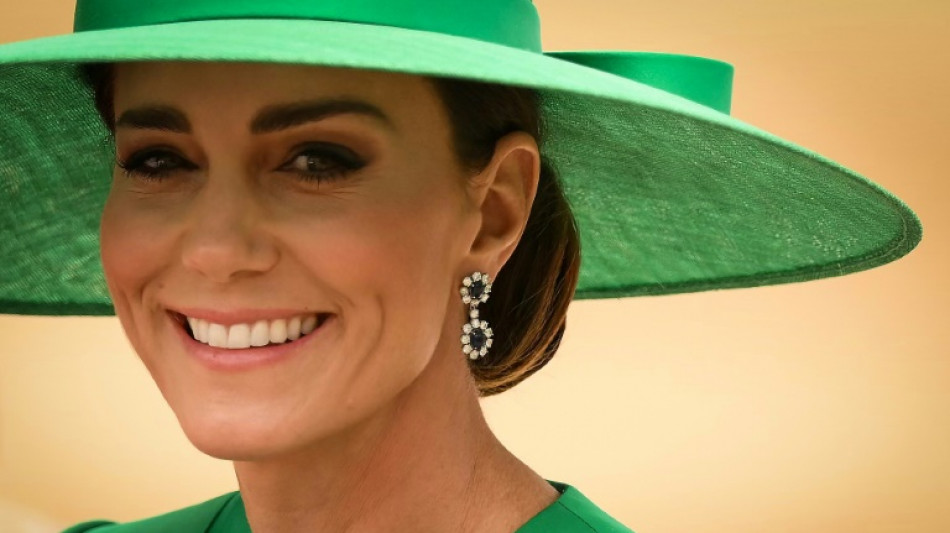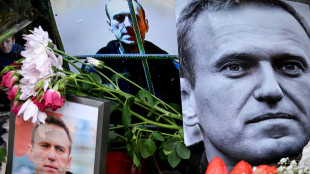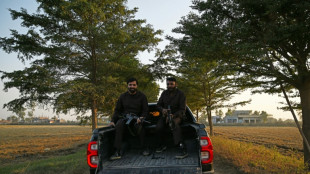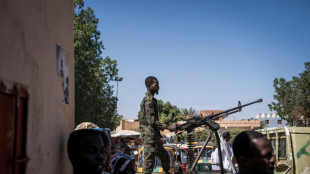
Britain in shock after Catherine's cancer announcement

After weeks of wild speculation, British people on Saturday digested the shock news that Catherine, Princess of Wales, has cancer, with many praising her courage while others criticised the conspiracies that spread over her absence.
Catherine revealed the news in a highly personal video released Friday, just weeks after King Charles III said he too is battling cancer.
The candid disclosure leaves the British monarchy in crisis with two of its most senior members simultaneously fighting serious illness.
Charles -- 17 months into his reign when Buckingham Palace announced in February that he would be cancelling all public engagements -- led tributes to his "beloved daughter-in-law".
The ailing 75-year-old monarch spoke of his pride in "her courage in speaking as she did".
Following other warm words from Prime Minister Rishi Sunak and the White House, British newspapers hailed the courage of the 42-year-old wife of Prince William, heir to the throne.
"Kate, you are not alone" read the front of The Sun.
The tabloid said it was "hugely comforting" to hear Kate say she was getting stronger, and that "perhaps the world will now appreciate why so much secrecy surrounded her surgery in January".
- 'Privacy' demand -
Others hoped it would end the frenzied rumours. The Daily Mail tabloid took aim at the "social media trolls who have been peddling disgusting conspiracy theories to explain her absence from public life."
The public also condemned media coverage of the princess however.
Stood outside Kensington Palace in London, Nathaniel Taylor, a 24-year-old government worker, said: "I think it's really damning what happened to them, what the media has done, how they've reacted over these past couple of months.
"I think some speculation is inevitable but the lengths people were going to try and make things up it's just (too much). Hopefully people take a look in the mirror."
At Tower Bridge, Sofia, a 19-year-old student who did not give her family name, said she had seen "weird accusations" about the absence and that the true reason was "sad".
"Obviously it was a much (more) serious matter", she said.
In her statement Kate, as the princess is widely known, admitted the diagnosis was a "huge shock" and asked for "time, space and privacy" as she completes chemotherapy.
In the video -- recorded Wednesday in Windsor, west of London, where the future queen and king live with their three young children -- she insisted she was "well".
She said it had taken them time to explain the situation to Prince George, aged 10, Princess Charlotte, eight, and five-year-old Prince Louis, "and to reassure them that I am going to be OK".
"William and I have been doing everything we can to process and manage this privately for the sake of our young family," Kate added.
Commentators commended its frank nature, with the princess speaking directly to the camera while sitting on a garden bench.
"So many people will have been so moved by the way that she conducted herself during that two minute plus broadcast," royal expert Richard Fitzwilliams told AFP.
"But there's no doubt at all that it's a very, very difficult time for the institution of monarchy," he added.
- Royal health woes -
Buckingham Palace announced on February 5 that tests had identified Charles had "a form of cancer" without giving further details.
He has cancelled all public engagements except audiences with the prime minister and ambassadors, and worked on official papers while receiving treatment.
He has been photographed several times since then, and seen attending church.
Kate was last seen at a public engagement on December 25.
Kensington Palace announced on January 17 that she faced up to two weeks in hospital and several months' recuperation following abdominal surgery.
She was not expected to be ready to return to public duties until after Easter on March 31, a statement at the time said.
- 'Doing their best' -
But Kate disclosed tests after the operation "found cancer had been present" and that she was now undergoing "preventative chemotherapy".
"Preventive chemotherapy after surgery is given to reduce the risk of the cancer coming back in the future," Andrew Beggs, a senior clinical fellow and consultant colorectal surgeon at the University of Birmingham, said.
He added it was "a bit like mopping a floor with bleach when you've spilt something on it," noting chemotherapy "kills any spilt cells".
L. Brown--BTZ

 London
London

 Manchester
Manchester
 Glasgow
Glasgow
 Dublin
Dublin
 Belfast
Belfast
 Washington
Washington
 Denver
Denver
 Atlanta
Atlanta
 Dallas
Dallas
 Houston Texas
Houston Texas
 New Orleans
New Orleans
 El Paso
El Paso
 Phoenix
Phoenix
 Los Angeles
Los Angeles



